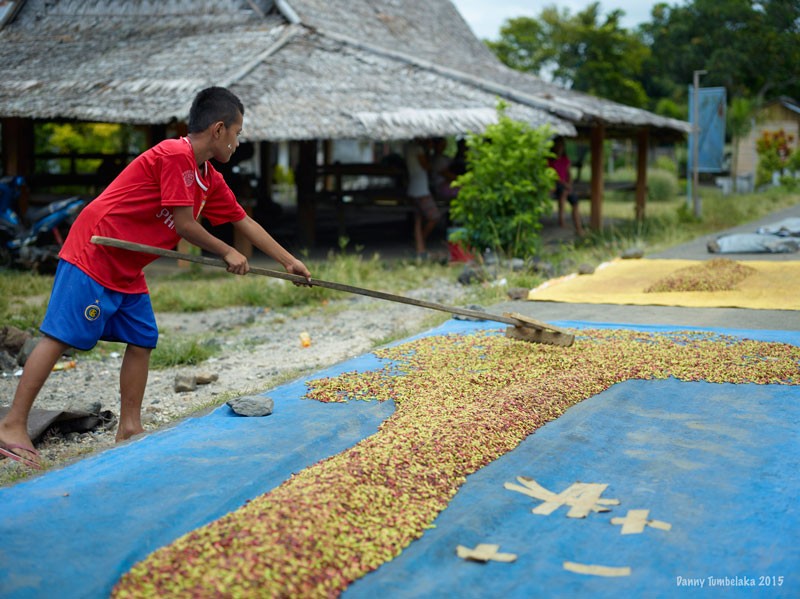Popular Reads
Top Results
Can't find what you're looking for?
View all search resultsPopular Reads
Top Results
Can't find what you're looking for?
View all search resultsSecrets behind ancient Sriwijaya spice trade
The ancient Indonesian kingdom of Sriwijaya in the southwestern part of Sumatra Island played a significant role in the spice trail. The kingdom, which possibly originated in Palembang, South Sumatra, rose to power in the seventh century and retained control over the trade of spices – which grew in abundance in the region – for around 500 years thanks to its strong navy.
Change text size
Gift Premium Articles
to Anyone
Sebastian Partogi
The Jakarta Post/Jakarta
The ancient Indonesian kingdom of Sriwijaya in the southwestern part of Sumatra Island played a significant role in the spice trail. The kingdom, which possibly originated in Palembang, South Sumatra, rose to power in the seventh century and retained control over the trade of spices – which grew in abundance in the region – for around 500 years thanks to its strong navy.
According to National Archaeological Research and Development Center researcher Bambang Budi Utomo, for around five centuries, Sriwijaya was the trading hub where middlemen from the Middle East and China went to get commodities – which had been shipped from the Maluku islands to Sumatra – in order to sell them to Europeans.
He said that because of limited navigation technology in the seventh century, European traders or middlemen could not easily reach the Maluku islands, which were located in the archipelago’s easternmost area. The islands were home to lucrative endemic spices, such as clove, nutmeg and mace.
Bambang said that thanks to Indonesia’s fertile soil, local farmers could maintain the high quality of their spices, leaving overseas customers begging for more.
Pepper, for instance, was also a popular commodity in the spice trade at that time. “Although pepper originated in India before it was cultivated in Indonesia, the pepper grown in our soil was somehow hotter than the one grown in India. This was why customers in the Middle East like Persia [now Iran] and even India itself preferred Indonesian pepper at that time,” Bambang explained.
Also take camphor as an example. China and Thailand also produced the commodity at that time, but traders preferred Indonesian camphor, which originated in the Barus area of North Sumatra, because of its higher quality.
From all the foreign spice consumers at the time, Europeans remained the ones most hooked on the Indonesian spices as a result of religious tradition and scriptures.
“Thanks to middlemen, the ancient spice trade before Sriwijaya had reached Italy before Christ. In 75 to 79 AD, the Roman bishop received a gift of 150 pounds of cloves from Emperor Constantine. In the Old Testament of the Bible, there is the story of the queen of Sheba presenting spices as gifts to King Solomon,” Bambang told The Jakarta Post in a recent telephone interview.
Bambang said the Sriwijaya kingdom was able to sustain its hold on the spice trade for hundreds of years thanks to its maritime military strategy and technology.
“Sriwijaya made use of suku laut [maritime tribe] at that time to guard the spice trade in the area. Although their main operational field was the sea, they were also great warriors,” he explained. This strong military base helped the kingdom maintain its maritime sovereignty.
Aside from the military strategy, Sriwijaya’s ship technology also played a vital role in making it a successful maritime hub.
“They had phinisi [schooners] that helped them navigate the ocean thanks to the design. That, however, is just one example of Sriwijaya’s outstanding maritime technology,” Bagus said.
Separately, historian JJ Rizal, who runs publishing company Komunitas Bambu specializing in history books, said part of the secret of the kingdom’s survival was its rulers’ strategy in turning financial accumulation into intellectual capital through a sound educational system.
“The port city of Barus gave birth to intellectuals in the seventh century, including Hamzah Fansuri,” he told the Post recently in his office. Hamzah Fansuri is a well-known Islamic literary writer.
“Power was demonstrated not through weaponry but through the grandeur of artistic performances and negotiations,” Rizal said.
The great Sriwijaya kingdom started to decline in the 12th century before its ultimate collapse in the 14th century.
“There came a time when Sriwijaya became too greedy with traders and middlemen who came to Sumatra through high taxation. Furthermore, internal conflicts and corruption also contributed to its end,” Bambang said.
Along with Sriwijaya’s decline, Indonesia’s maritime sovereignty and technology have not risen far from the ruins.
“For instance, until the 1980s, we still had a traditional sailing and trading route from Kalimantan to Java using phinisi. This tradition has since died. We also have to ask why almost all of the ships that navigate Indonesian waters fly foreign flags. The government needs to create a few regulations in order to preserve our tradition,” Bambang said, concluding the interview.
A story on this subject will also appear in the paper edition of The Jakarta Post on Aug. 18.
- (-/-)










